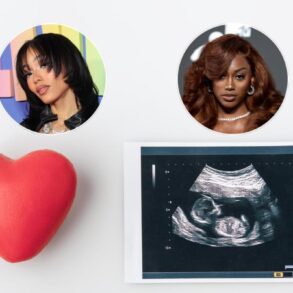The list of megapop stars who achieved success with clean lyrics is short. Very short. BTS, one of my favorites, is on that list. So when lead singer Jung Kook recently pivoted to release explicit songs, the list became noticeably shorter. This highlights a disturbing trend, one that intersects directly with girls’ and women’s mental health.
It helps to know BTS’ backstory. The supergroup is known for its mental health advocacy and social justice platforms. They created a Love Myself campaign with UNICEF to “share love…and champion children and youth all around the world.” Early in their ten-year career, the group took a deliberate stance to refrain from objectifying or sexualizing women. Despite going against a music industry norm, they achieved huge success.
Now, as part of his solo launch, different imagery has surfaced in Jung Kook’s songs. They include: a woman telling her man that she will “be your fantasy” and “swallow your pride” to make him “never think about cheating;” lyrics that identify women as “Those Hos Over There”; and a male rapper telling his female partner, “I wanked before you came so I can f— you longer.”

The number of superstar pop or hip-hop acts who portray women without objectification seems to be the minority. Only a handful of musicians of BTS’ and Jung Kook’s statures have done so, including Taylor Swift, probably Ed Sheeran, possibly Justin Bieber, and Olivia Rodrigo. In reality, Jung Kook’s songs are par for the course, or even tame, compared to his peers.
A Pennsylvania State University College of Medicine study of Nielsen Music and Billboard chart’s top 100 songs from 1998 to 2018 examined over 1,000 songs across musical genres. Forty-six song themes were identified as negative, neutral, or positive. The study found a 180 percent increase in negative themes across all genres, including domestic violence, infidelity, racism, objectification, and misogyny.
That trend points to an even deeper problem. An American Psychological Association task force found that the sexualization of girls and women in the media has negative mental health outcomes, including shame, poor self-confidence, low self-esteem, depression, and eating disorders. This confirms what most of us instinctively know: relentless negative messages injure people. The steady, cumulative whispers become a deafening roar.
Derogatory messaging feeds a growing mental health crisis young women already face. According to a 2021 CDC survey of 17,000 high school students, 30 percent of high school girls have seriously considered suicide, a rate 60 percent higher than ten years ago, and 20 percent have experienced rape or sexual violence. Since 2006, suicide rates have doubled among adolescent girls. A UNICEF brief concluded that sexual objectification in the media normalizes violence against girls and women throughout the world.
Sexism and its collateral mental health fallout are deeply embedded in the fabric of our societies, including in the music we listen to. No single person or artist can undo this overnight. Yet, like everyone, musicians can make a choice. They can choose not to amplify the lowest common, damaging musical denominators that hypersexualize and objectify women.
For ten years, from their home base in South Korea, BTS did exactly that, inspiring deep loyalty among audiences across the globe. Instead of defaulting to an explicit template, they wrote movingly about what it’s like when the world falls short of our ideals. They offered equally moving glimpses of a different world: one more equal, more diverse, more vulnerable, more empathic.
Their “outsider” status and use of a markedly different playbook surprised industry watchers used to Western standards. To this Asian-American woman, their music pointed to an oasis amidst deserts of sexism and xenophobia. I, along with tens of millions of their fans (I see you, Army), caught their vision. And we celebrated as the group achieved fame along the way.
Perhaps BTS and members like Jung Kook will keep finding eloquent, intelligent ways to bring this new world to life, to widen the road less traveled. Perhaps other musicians will also rise to that challenge instead of doubling down on damaging biases and calling it business as usual. And perhaps, as a society, we will stop supporting music that reaps a profit at the expense of girls’ and women’s health and selfhood.
Perhaps it can still be that our best is yet to come.
This post was originally published on this site be sure to check out more of their content.





